- Home
- Rick Mofina
As Long As We Both Shall Live (Dangerous Women & Desperate Men) Page 3
As Long As We Both Shall Live (Dangerous Women & Desperate Men) Read online
Page 3
He stepped carefully toward the small, swirling pool. Then he slipped off his camera gear and made his way into the cold, waist-high water, bracing himself as he reached for the body of a child.
A Caucasian boy. About eight or nine, Ito estimated. Sweat shirt, jeans and sneakers.
He was dead.
Sadness flooded Ito’s heart.
As he prepared to lay the boy on the riverbank, the sudden loud thumping of something large bearing down forced Ito to flinch as a canoe crashed into the rocks next to him. It was empty.
Taking stock of the river, he shuddered.
Were there more victims?
Ito ran to the trail head, waved down two women, German tourists riding bicycles, and within an hour park wardens had activated a search and rescue operation.
The area was known as Faust’s Fork, a rugged section of rivers, lakes, forests, glaciers and mountain ranges straddling Banff National Park and Kananaskis Country. It was laced with trails and secluded campsites. Access was by foot or horseback, except for a few day-use riverside points that you could drive to, and, a cluster of remote drive-thru campsites at the river’s edge which were served by an old logging road.
After confirming the boy’s death, and facing the possibility of other victims, park officials notified the Royal Canadian Mounted Police, the Medical Examiner, paramedics, local firefighters, provincial park rangers, conservation officers and other agencies. They established a search zone with gridded sectors.
Rescue boats were deployed up and down the river but could not look for survivors in the section where the boy was found. The flow was too wild. Search teams were assembled and scoured the area on foot, horseback, or used ATVs. All had radios, some had search dogs. A helicopter and a small fixed wing plane joined the operation along with volunteer search groups, who advised other campers in Faust’s Fork.
Some distance upstream in a remote campsite, Daniel Graham stood alone on a small rise that offered a panoramic view of the river, the mountains and the sky.
He gazed upon the bronze urn he was holding, caressed the leaves and doves that were engraved in a fine band around its middle. After several moments, he unscrewed the lid, tilted the urn and offered the remainder of its contents to the wind. Fine sand-like ashes swirled and danced along the river’s surface until there was nothing left.
Graham looked to the snow-crested peaks, as if they held the answer to something troubling him. But he never had time to find it. The serenity he’d sought was broken by a helicopter thudding by him at less than one hundred feet over the river.
A few moments later, it made a second low-altitude pass in the opposite direction.
Must be a search, Graham figured, as he set the urn aside and looked along the river for any indication of what was happening. Not long after the chopper had subsided, the air crackled with the cross-talk of radios as two men in bright orange overalls entered his site.
“Sir, we’re with search and rescue,” the first one said, “there’s been a boating accident on the river. We’ve got people looking for survivors. Please alert us if you see anything.”
“How serious?”
The searchers assessed Graham, standing there in his jeans and T-shirt. Late thirties, about six feet tall with a muscular build, and a couple days’ stubble covering his strong jaw, accentuating his intense, deep set, eyes.
He produced a leather wallet and opened it for them to study the gold badge with the crown, the wreaths of maple leaves, the words Royal Canadian Mounted Police, the bison’s head encircled with the scroll bearing the motto, “Maintiens le Droit”. The photo ID was for Royal Canadian Mounted Police Corporal Daniel Graham.
“You’re a Mountie?”
“With Major Crimes out of Calgary. Off-duty at the moment. How serious is this accident? Are there fatalities?”
“One for sure. A young male. We don’t have confirmed details.”
“Have any members arrived yet? Can you raise your dispatcher?”
One of the men reached for his radio, made checks with the dispatcher and Graham was told that members of the local Banff and Canmore RCMP detachments were en route. Others were being called in to help.
“Do you have a scene and an identity on the victim?” Graham asked.
Over the radio a park dispatcher told Graham that the body of a young male, approximately eight to ten years of age, was found about a kilometer down river from Graham’s location. It appeared a canoe had overturned and that wardens suspected that there were other victims.
“It’s all happening now,” the dispatcher said.
“I’ll help search as I make my way to where the boy was found. Pass that along,” Graham said.
The searchers continued upstream while Graham collected some items and headed to the river, moving as quickly as he could along the harsh terrain. The interruption had distracted him from his purpose for being here. Graham pushed his personal problems aside to deal with the tragedy unfolding before him.
At times he paused to use his binoculars to scan the rugged banks and the water, concentrating on rocks spearing the surface. They created powerful spouts and rain-bowed curtains of white water, while the current pounded against them. As he searched, Graham heard the intermittent whump of the chopper and the buzz of the small plane overhead.
When he came to a perilous section, he slipped on the wet ledges, banging his knee. But he kept going, picking his way along craggy formations. They stood as a gateway to a waterfall that dropped two stories. He could hear its roar.
As he steadied himself, Graham thought he’d seen a patch of color amid several large rocks that forced geysers of spray in the middle of the river. He found a secure position and focused his binoculars. The spray obscured his view but he was convinced that through the gushing watery fan, he could see a swatch of pink, low against the rock. He got into a better position and distinguished details: a small head, an arm, a hand.
It’s a child. A girl. Pinned to the rock by the current. Clinging for life.
She was about the width of a football field away from him, concealed by a clear dome of water spray. At any moment she could slip under the water, or off the rock and be swept to the falls. She’d never survive the plunge.
There was no time to lose. He didn’t have a radio. Or a cell phone. No other searchers were in sight. He had to make a decision.
Standing alongside the roaring river, staring at the tiny pink square, he could feel the vibrations of the rushing water in his rib cage. He knew the danger of going into the river. He’d have only one chance to reach her. If he missed, the current would carry him away to a life-and-death struggle to save himself before it took him over the falls and the rocks at the drop.
After all that had happened, what did he have left in his life?
Graham knew the risk. He would likely die. But so would that child if he didn’t try to save her.
He had to go after her.
He hurried back upstream, kicked off his boots, set aside his badge, binoculars, everything that would weigh him down, then slid into the water.
The river swept him along, adrenalin coursed through him as he maneuvered around the rocks while contending with the current. White flashed before his eyes as his lower leg slammed into a rock. Pain shot through him and he slipped below the surface. Water gurgled in his ears, gushed into his stomach.
He fought his way to the surface, coughing and spitting water, gulping air while struggling to find his bearings to line up on the girl. The pink patch, his critical guide, had vanished. Rapids and spray concealed her. He was blinded by the water, only guessing her location.
A hidden rock punched his breath from him, he grabbed it, struggled to lift himself upon it, glimpsing pink downstream just as the river pulled him down, tearing his palm against the razor edge of a rock.
Graham slipped under the surface. In the churning water he saw small legs pressed against the rock ahead. Using all of his strength, he guided himself to it. The pressure wel
ded him to the rock.
He was underwater, couldn’t move, couldn’t get to the surface.
Alarm rang in his ears. His lungs ached for air. He was not going to make it.
“Keep going, Daniel.” He heard his wife’s voice. “You have to keep going.”
It took every ounce he had to battle the water’s power and work his head to the surface where he gulped mouthfuls of air while holding fast to the rock. After several seconds, his mind cleared and he worked his way around the rock, reaching as far as he could, until he felt small fingers, a hand, the arm of the girl. He continued positioning himself until he came face to face with her.
Little eyes, wide with terror, met his.
Her lips were blue.
She was alive, quaking with shock.
She appeared to be five or six.
Graham got closer, got his arm around her and peeled her from the rock. She was bleeding from a head wound. Graham worked their position around the rock where he had more control, struggling to steady the girl and himself against the rock, praying it was not in vain.
As he held her, her eyes locked on to his.
He moved his mouth to her ear to offer her comfort.
“You’re going to be all right,” he said. “I’m going to help you. Hang on. Just hang on.”
She stared at him and her mouth began to move.
He pressed his ear closer, straining to hear above the river’s roar, but he was uncertain what she was saying.
“Don’t . . . daddy . . . don’t . . . please . . . ”
-Buy Six Seconds for Kindle-
Text Copyright © 2009 Rick Mofina
Cover Art Copyright © 2009 by Harlequin Enterprises Limited.
Text and cover art used by arrangement with Harlequin Books S.A. and Harlequin Enterprises Limited ® and TM are trademarks owned by Harlequin Enterprises Limited or its affiliated companies used under license.
It took years to create Six Seconds
a new global thriller
By Rick Mofina
Let me take you back to 1984, September, and Pope John Paul II’s visit to the Canadian capital of Ottawa.
The papal flotilla was gliding along the Rideau Canal a short walk from my Carleton University where I was studying Journalism, English Literature and enjoying a gem of course called American Detective Fiction.
I accompanied many fellow students along with thousands of spectators who’d found spots along the beautiful waterway. It was a gorgeous day to witness history.
I was standing next to a student whom I knew from a class. We were on a grassy knoll. I swear. It offered an unobstructed view some forty yards from a narrow point in the canal. The student was carrying a small gym bag and brooding at the event.
At that time, security appeared to be invisible in our immediate area.
Police boats rumbled by, then amid great cheering, the Holy Father’s small white boat approached. As it passed through our area, the student revealed to me that he didn't care much for the pope and wished that he'd had a weapon in his bag.
My jaw dropped.
“Only joking,” he grinned then actually smiled and returned a wave that John Paul II had offered to our section of the crowd.
Afterward, when I attended the pope's large outdoor Mass, and wondered about that student. The images of Mehmet Ali Aga’s attempt to assassinate the pope some three years earlier were fresh in my mind.
I knew that the seed of a story had been planted.
For around that time I was secretly writing fiction, hoping one day to be published. In the years following that episode, I watched news reports of papal visits to other countries.
Years later, I was a reporter working with a colleague on an anniversary news feature about a loner's failed-by-a-hair plan to assassinate U.S. President Richard Nixon. The would-be assassin wrote in his diary that protesters got in his way, thwarting his desire to kill the President. For that item we talked to a number of people. I talked to former U.S. Secret Service agents who reflected on the stress of protecting VIPs, and the work that goes on behind the scenes.
Another seed had been planted.
Moving forward to some seven months after the tragic events of September 11, 2001; I was working as correspondent for a national news wire service. I had been assigned to accompany the Prime Minister of Canada on his trip to Africa.
During that assignment I stopped in my tracks when I saw a small boy in a Nigerian village wearing a T-shirt bearing Osama bin Laden's face and words that praised him as a #1 hero.
That scene stuck with me.
A story had taken root.
On that same trip we visited Ethiopia. We toured the mud-hut villages of the hill country. I was also fascinated watching old women weave fabric in the slums of Addis Ababa.
I had recalled seeing televised images of world leaders meeting members of the public and knew that security people were always anxious about the handshakes and hugs received by their VIPs.
More seeds had been planted.
These moments, and so many others stayed with me; like exploring the labyrinthine bazaars of Rabat, Morocco; talking with an armed palace guard in Dakar, Senegal; or driving over Kuwait's northern desert to the border with Iraq to hear UN peacekeepers at the DMZ talk about the toll land mines were exacting on Iraqi children.
Six Seconds, my standalone thriller, took shape by blending these moments with history, my experiences and my imagination.
And all the planted seeds began evolving into “what ifs”.
What if an average everyday suburban California family, strained by financial problems, started to crack? And what if, in another part of the world, an off-duty detective was investigating the mysterious death of a reporter’s family in the Rocky Mountains? What if that reporter was from Washington, D.C., where he was onto a story about a global plot against a high-profile target?
What if a British woman, haunted by monumental tragedy, was discovered wandering alone in a Middle East desert, found her way to America.
And what if two anguished mothers from two different worlds found themselves on a collision course that would make the world tremble?
This is the story behind Six Seconds, a tale that considers how we might respond to our greatest fears.
This essay appeared in Mystery Scene Magazine.
Reprinted with the kind permission of Mystery Scene Magazine. More information at www.mysteryscenemag.com .
Author’s note on Vengeance Road
The International Thriller Writers (ITW) named Vengeance Road a finalist for a 2010 THRILLER AWARD in the category of Best Paperback Original and The Private Eye Writers of America named it a finalist for a 2010 SHAMUS Award for Best Paperback Original.
Vengeance Road introduces readers to crime reporter Jack Gannon in the first book of my Jack Gannon series. The murder of a broken-hearted woman and the chilling disappearance of her friend raise questions about their ties to a beloved cop regarded as a hero by his community. Privately, detectives are uneasy with the answers the cop gives to protect the life — and the lie — he’s lived. The case haunts Gannon, a gritty blue-collar reporter, and drives his obsession to find the truth.
Copyright © 2009 by Rick Mofina
This is a work of fiction. Names, characters, places and incidents either are the creation of the author’s imagination or are used fictitiously, and any resemblance to actual persons living or dead, business establishments, events or locales is entirely coincidental.
This book is for Barbara
I am the man that hath seen affliction by the rod of his wrath.
He hath led me, and brought me into darkness, but not into light.
Surely against me is he turned; he turneth his hand against me all the day.
– Lamentations 3
The evil that men do lives after them;
The good is oft interred with their bones.
– Julius Caesar, Act III, Scene ii
– William Shakespeare
&nb
sp; Vengeance Road (Excerpt)
Brooks, Alberta, Canada 1937
Majestic dust clouds ascended from the parched earth as a lone farm truck cut across the desolate prairie.
Norris Selkirk drove while his mother, Vida, sat next to him; the sky and worry reflected in her eyes as she searched the endless horizon.
Not a sign of life for miles in this quarter of dry grassland where the Blackfeet Nation once hunted the great Buffalo herds before treaties were signed and the white homesteaders arrived.
This morning Vida told her husband that she needed their son to take her out to the Rudd place.

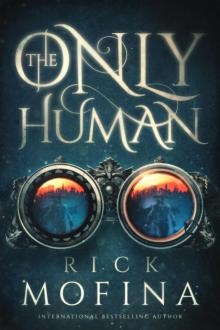 The Only Human
The Only Human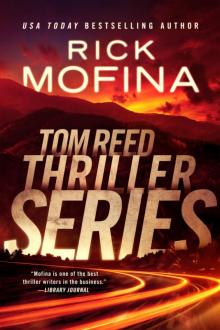 Tom Reed Thriller Series
Tom Reed Thriller Series![[Tom Reed and Walt Sydowski 04.0] No Way Back Read online](http://i1.bookreadfree.com/05/tom_reed_and_walt_sydowski_04_0_no_way_back_preview.jpg) [Tom Reed and Walt Sydowski 04.0] No Way Back
[Tom Reed and Walt Sydowski 04.0] No Way Back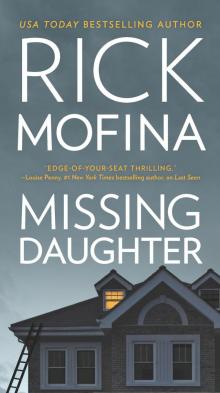 Missing Daughter
Missing Daughter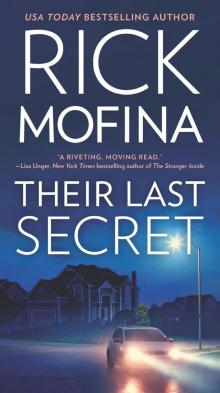 Their Last Secret
Their Last Secret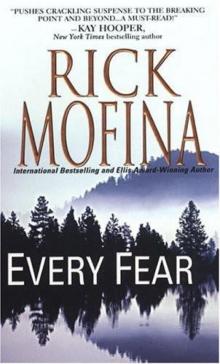 Jason Wade - 02 - Every Fear
Jason Wade - 02 - Every Fear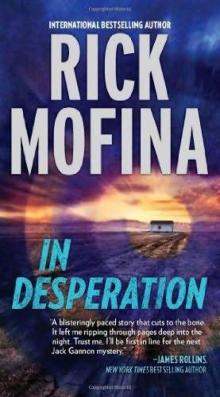 In Desperation
In Desperation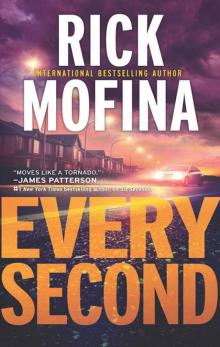 Every Second
Every Second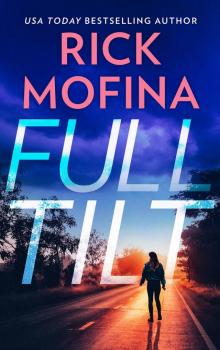 Full Tilt
Full Tilt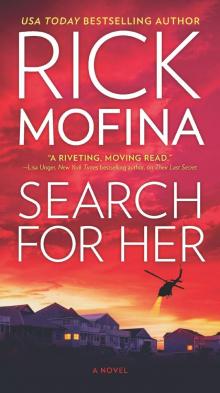 Search for Her
Search for Her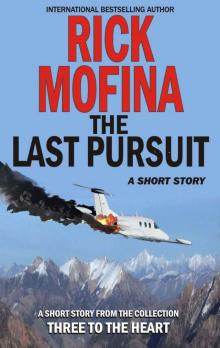 The Last Pursuit
The Last Pursuit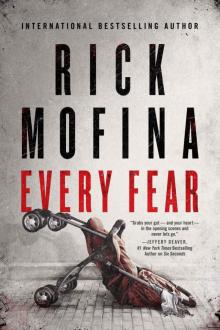 Every Fear
Every Fear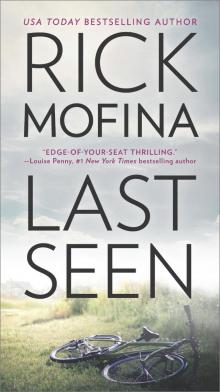 Last Seen
Last Seen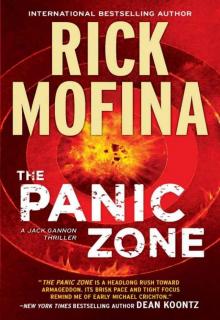 The Panic Zone
The Panic Zone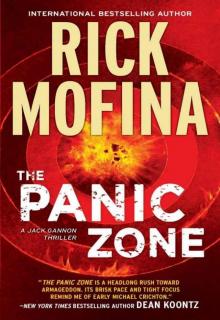 The Panic Zone jg-2
The Panic Zone jg-2 Free Fall
Free Fall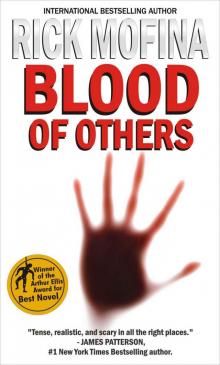 Blood of Others
Blood of Others![[Jason Wade 02.0] Every Fear Read online](http://i1.bookreadfree.com/i1/03/31/jason_wade_02_0_every_fear_preview.jpg) [Jason Wade 02.0] Every Fear
[Jason Wade 02.0] Every Fear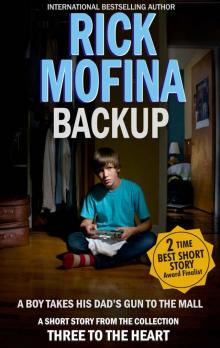 Backup
Backup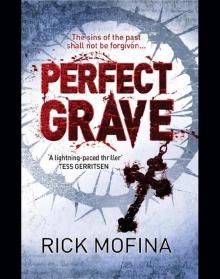 Perfect Grave
Perfect Grave Into the Dark
Into the Dark Whirlwind
Whirlwind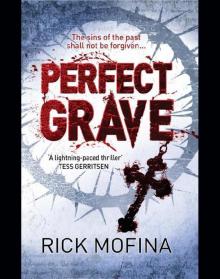 Perfect Grave jw-3
Perfect Grave jw-3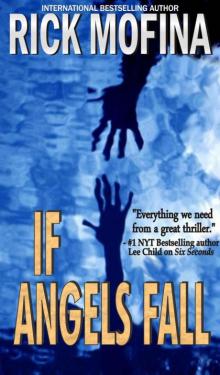 If Angels Fall (tom reed and walt sydowski)
If Angels Fall (tom reed and walt sydowski)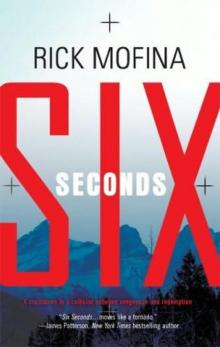 Six Seconds
Six Seconds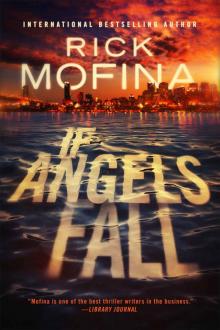 If Angels Fall
If Angels Fall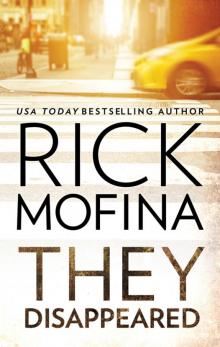 They Disappeared
They Disappeared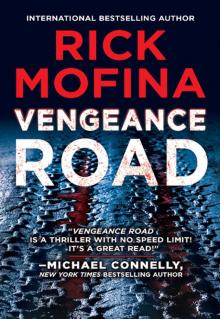 Vengeance Road
Vengeance Road Before Sunrise
Before Sunrise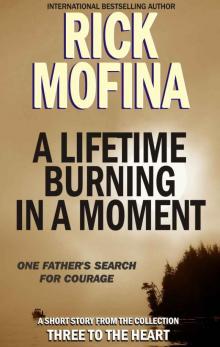 A Lifetime Burning in a Moment
A Lifetime Burning in a Moment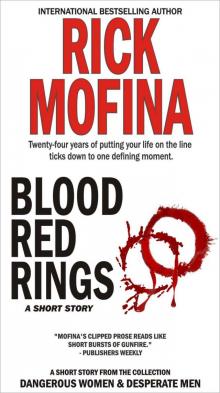 Blood Red Rings (Dangerous Women & Desperate Men)
Blood Red Rings (Dangerous Women & Desperate Men)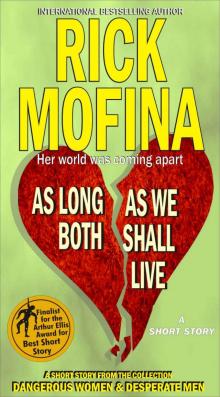 As Long As We Both Shall Live (Dangerous Women & Desperate Men)
As Long As We Both Shall Live (Dangerous Women & Desperate Men)![[Tom Reed and Walt Sydowski 01.0] If Angels Fall Read online](http://i1.bookreadfree.com/i2/04/12/tom_reed_and_walt_sydowski_01_0_if_angels_fall_preview.jpg) [Tom Reed and Walt Sydowski 01.0] If Angels Fall
[Tom Reed and Walt Sydowski 01.0] If Angels Fall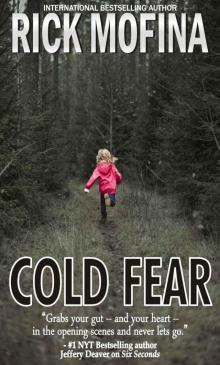 Cold Fear
Cold Fear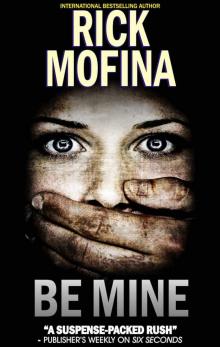 Be Mine
Be Mine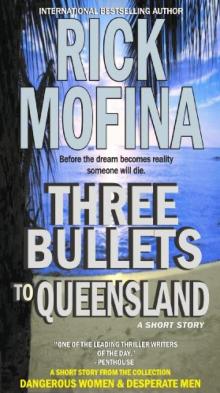 Three Bullets To Queensland
Three Bullets To Queensland